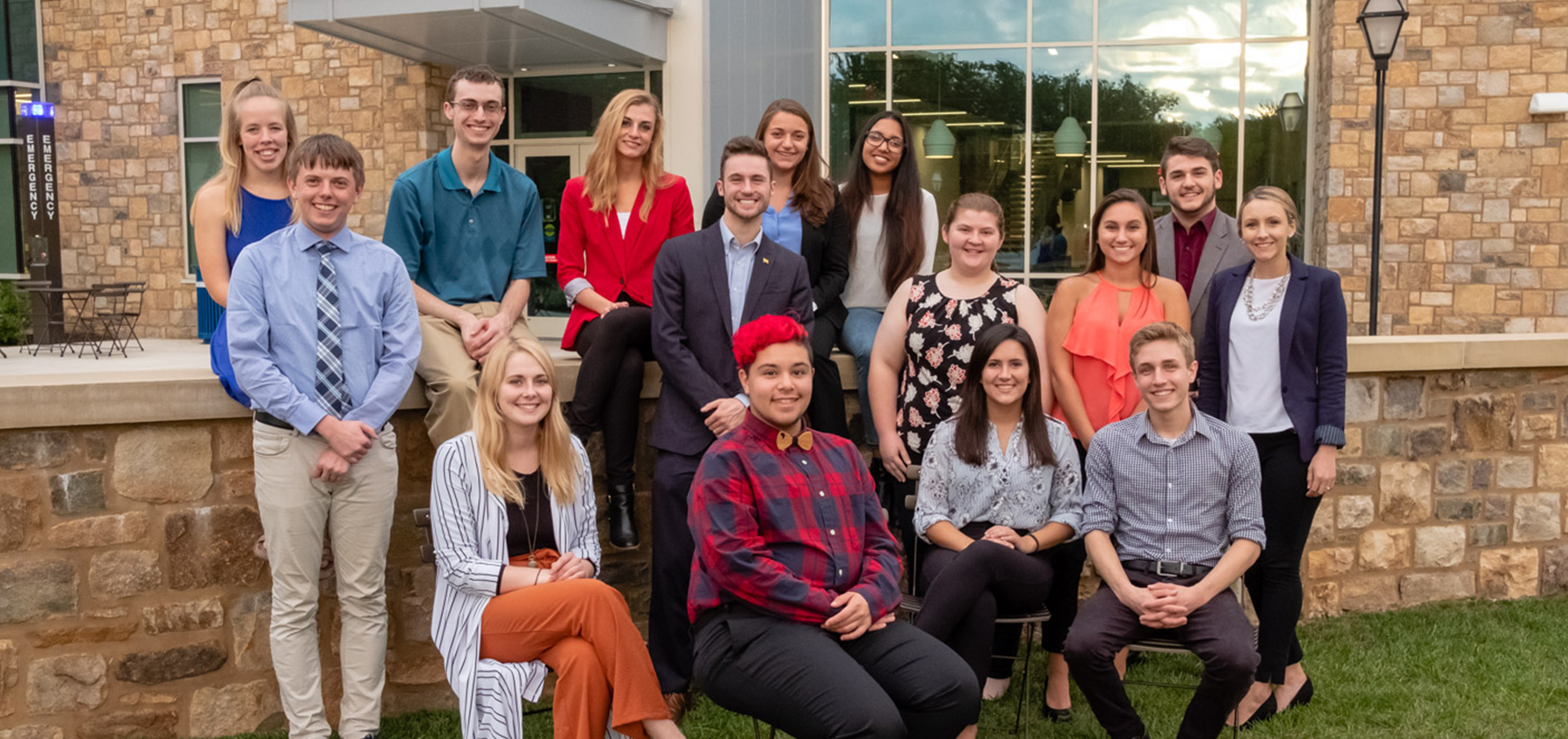
Eradicating poverty and hunger and improving access to quality education, clean water, and health care—these are just some of the issues addressed in the United Nation’s 17 Sustainable Development Goals. It takes a vast network of innovative minds to bring about solutions to the world’s most-pressing challenges—including 15 Moravian student leaders.
Building a Broader Network
Despite a tight deadline (less than three weeks) and assembling students over summer break, Diane White Husic, dean of the School of Natural and Health Sciences, was excited to receive an email invitation in summer 2018 to apply for the Millennium Fellowship (a semester-long leadership development program presented by United Nations Academic Impact and Millennium Campus Network).
In the past, UNAI and MCN operated separately, working with the world’s top universities to essentially create grassroots incubators for new ideas and to empower young leaders to tackle the UN’s goals. But last year, the organizations partnered to present the Fellowship and open it to a broader network of students.
Students from 285 campuses across 57 nations applied to join the Millennium Fellows’ Class of 2018, and Moravian was selected among just 30 campuses across 13 nations to advance the UN’s Goals in measurable, actionable ways, on campus and in the community.
The 1742 Model
Bringing together the ideas of 15 students across majors and interests is no easy feat, but co-directors Eileen Rolwood ’19 and Michael Gallo ’19 decided to create a program that would encompass four main areas of focus: education in sustainability, housing insecurity, food insecurity, and LGBTQ+ education and inclusion.
The 1742 Model: The Sustainable Development Goals in the Lehigh Valley: A Comprehensive Program for Education and Action enabled Fellows to work in the areas they were most passionate about and which reflect the College’s InFocus centers of investigation: war and peace, poverty and inequality, sustainability, and health and healthcare.
“The inspiration for the 1742 Model grew out of the college’s educational mission and institutional values, particularly the InFocus program,” says Gallo, a biochemistry/health policy major, “and the name, obviously, represents the year that Moravian College was founded.”
The 1742 Model took on many different forms. The education group visited nine area schools to teach students in grades kindergarten through 12 lessons on how to be sustainable citizens of the Earth. The group reached more than 1,000 students, far surpassing the goal of 500.
“I feared the complexity of our lessons would go over the heads of the kindergarteners and that the significance of our objectives would bore the high schoolers,” explains Rolwood, an early childhood education/cultural studies major. “Much to my surprise, the five-year-olds brainstormed ways to live in a sustainable society, and the high schoolers eagerly asked us how they can be more involved.”
On campus, Fellows hosted three information sessions for the LGBTQ+ community, providing information on the type of appropriate language to use and the hardships facing this population. They also arranged a number of events centered around housing insecurity, including a sleep out to simulate homelessness, creating a makeshift homeless shelter, and outfitting a car as a mock shelter for an interactive event where students were encouraged to write down what they thought it would feel like to be homeless.
Gallo says that for him, the highlight of the Fellowship was supporting the food pantry at a local elementary school where many students experience varying degrees of food insecurity and partake in the free or reduced lunch program. Collaborating with the school and its existing corporate sponsors, the Fellowship crowd-funded more than $9,000, and Gallo continues to stay involved. To address food scarcity on campus, Fellows have mapped out plans to establish a community garden.
Another Way We Are A Little Revolutionary
In communicating with Fellowship students and representatives from other institutions, Gallo says he learned that Moravian’s project stood out for the fact that it was an academic, credit-bearing course. “We met weekly and had a course syllabus that was focused on different learning objectives in addition to the different deliverables that we had laid out relative to our project.”
Rolwood and Gallo both credit the enthusiasm across campus and guidance from co-directors Husic and Public Health Program Director James Teufel for their successes. “One of the biggest takeaways was that the only element students needed to have an impact either on campus or in the local community was a unifying force such as the Fellowship to bring everyone together,” says Gallo, who had the honor of speaking on behalf of Moravian for the Millennium Fellows graduation last fall.
What the Moravian College fellows accomplished stands equal to that of elite institutions including Cornell University, The University of Pennsylvania, and King’s College in London. “Some people from the outside looking in might not place Moravian at that level,” Gallo says. “I think this is another way we demonstrate that we are a little revolutionary.”
Moravian College Millennium Fellows:
- Alec Buttner ’20
- Jessica Buttner ’19
- Jason Dietrich ’19
- Adriana Facchiano ’19
- Michael Gallo ’19
- Matthew Geary ’20
- Prishaani Govender ’20
- Kayla Herr ’19
- Miles Molerio ’21
- William Pelletiers ’20
- Shianne Reimer ’20
- Eileen Rolwood ’19
- Erika Salus ’19
- Morgan Wagner ’19
- Melissa Webber ’19